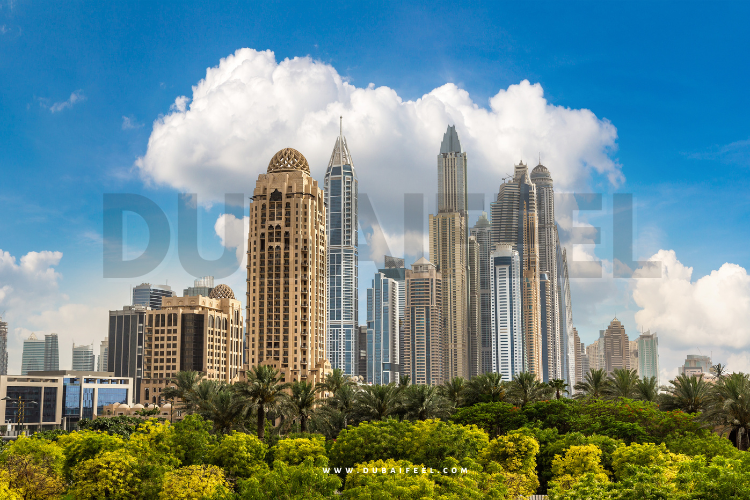Exploring Dubai’s culture offers a unique blend of tradition and modernity. Here are eight ways to dive into the city’s rich cultural heritage:
1. Culture Awaits: Visit the Al Fahidi Historic District for a Deep Dive into Dubai’s Heritage
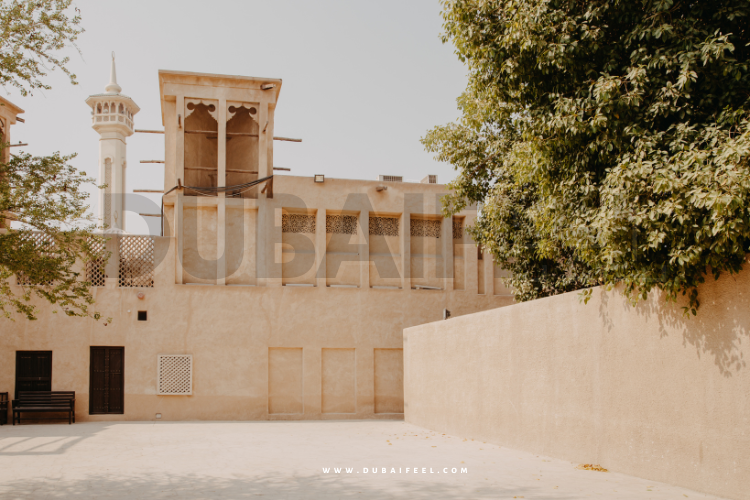
Step into the Al Fahidi Historic District, one of Dubai’s oldest neighbourhoods, for a truly immersive experience. The district’s narrow paths, traditional wind-tower architecture, and museums that offer glimpses of the city’s pre-oil era make it a unique cultural treasure. The Al Fahidi Historical Neighborhood, also known as Al Bastakiya, nestled along the serene Dubai Creek, provides a captivating window into Dubai’s vibrant past.
This well-preserved district beautifully captures the essence of the city’s culture before the onset of rapid modernization. As you navigate its narrow lanes and study the traditional wind-tower houses, you uncover a time when Dubai flourished as a bustling trading hub, showcasing its rich cultural heritage.
Start your journey at the Dubai Museum in the historic Al Fahidi Fort, a crucial resource for understanding Dubai’s history. The museum provides a comprehensive introduction to Dubai’s early days, offering insight into the traditions, artefacts, and cultural practices that shaped the region. The maze-like streets of Al Fahidi continue this narrative, revealing glimpses of a culture rooted in commerce, community, and architectural innovation.
The neighbourhood’s iconic wind-tower architecture is one of the most distinct features, reflecting traditional Arabian design. These towers, known for harnessing the wind to cool the interiors, are a testament to the ingenuity of early Dubai builders. Before the advent of modern air conditioning, these structures were essential to adapting to the desert climate.
The preservation of this architectural style not only highlights Dubai’s practical heritage but emphasizes the deep cultural connection to the land and environment. Al Fahidi’s cultural significance extends beyond its architecture. Historically, the neighbourhood was a thriving centre of trade, where merchants from Persia and India would converge to exchange goods.
This economic activity was pivotal in shaping Dubai’s growth and reputation as a key trading port. Walking through the neighbourhood today, you can almost feel the echoes of past trade and cultural exchanges that once animated the area. Cultural institutions within Al Fahidi further enrich the experience of exploring this historic district. The (SMCCU) is a cornerstone of the neighbourhood, offering guided tours and cultural programs that dive deep into Emirati traditions.
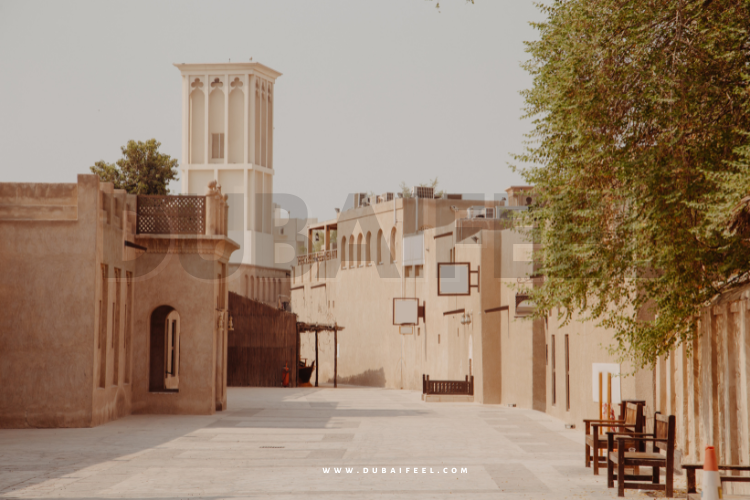
Through these initiatives, the centre plays a vital role in educating visitors about the culture and customs that have shaped Dubai’s identity, providing an authentic and immersive experience. Efforts to preserve the Al Fahidi Historical Neighborhood reflect a dedicated commitment to maintaining Dubai’s cultural identity amidst rapid urban development. Restoration projects led by the Dubai Municipality ensure the area’s historical charm remains intact, allowing visitors and future generations to experience Dubai’s cultural heritage firsthand. These efforts highlight the importance of preserving the culture that defines the city’s roots.
In addition to its historical landmarks, Al Fahidi is a vibrant hub of modern cultural activities. Art galleries, museums, and cafes infuse the neighbourhood with a contemporary cultural vibrancy, bridging the past and the present. Exploring Al Fahidi is not just a journey through history but a rich cultural immersion that brings to life Dubai’s evolution from a modest trading port to a global city. Visiting the Al Fahidi Historical Neighborhood gives you a deeper understanding of Dubai’s cultural journey.
Also read: 10 Unforgettable Yet Overrated Romantic Activities in Dubai: What You Need to Know
2. The Dubai Museum
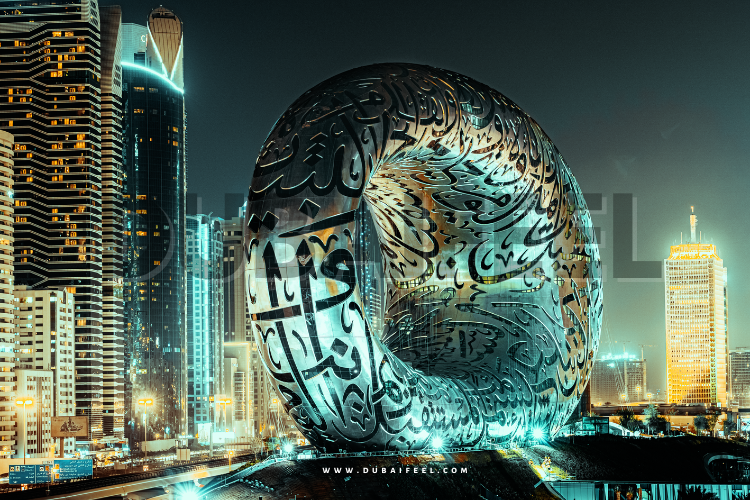
The Dubai Museum is a cornerstone of the city’s cultural heritage. As one of Dubai’s oldest buildings, the museum comprehensively explores the region’s history, offering visitors a deep understanding of the Emirati culture before transforming into a modern metropolis. This iconic museum invites visitors to journey through Dubai’s past, experiencing the daily lives, traditions, and cultural practices that shaped its development.
The museum’s exhibits are thoughtfully curated to give a well-rounded picture of Dubai’s artistic evolution. Upon entering, visitors unveil a display of traditional Emirati life, including scenes of Bedouin communities, pearl diving, and fishing, which were once central to the city’s economy. The displays effectively showcase culture’s role in shaping the people’s social fabric and survival strategies during those times.
A standout feature of the Dubai Museum is its immersive dioramas, which vividly depict the city’s transition from a small trading post to a thriving global city. These interactive exhibits give visitors a unique opportunity to engage with Dubai’s culture on a deeper level, offering a sensory experience that brings the past to life. The museum’s meticulous attention to detail in recreating market scenes, homes, and mosques establishes a tangible connection to Dubai’s cultural roots, making it truly unique.
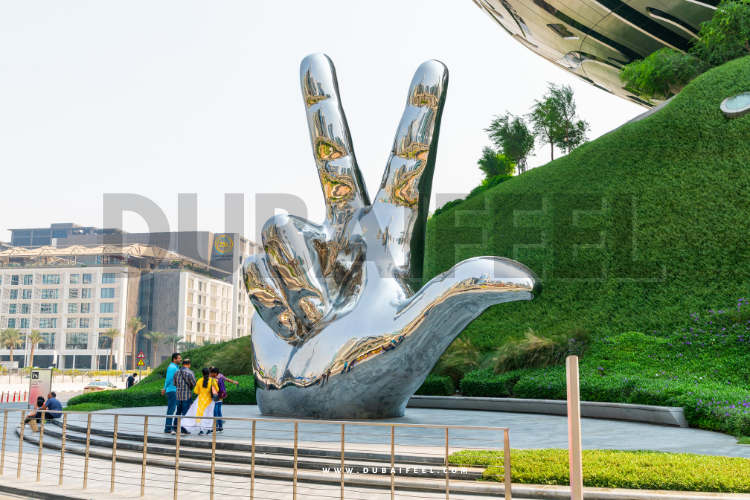
In addition to focusing on the past, the Dubai Museum emphasizes the city’s role as a cultural melting pot. The exhibits highlight the various influences that have shaped Dubai’s identity, from Persian traders to Indian merchants, illustrating the diverse blend of cultures that have long coexisted in the region. This diversity is a central theme throughout the museum, reflecting Dubai’s openness to different traditions while preserving its cultural identity.
For those seeking to delve into the heart of Dubai’s history, the Dubai Museum is an indispensable destination. It offers a rich exploration of the city’s cultural heritage, vividly portraying its journey through time. By showcasing the traditions, lifestyles, and cultural exchanges that have defined Dubai, the museum plays an integral part in maintaining and celebrating the rich and diverse culture of the region.
3.The Jumeirah Mosque
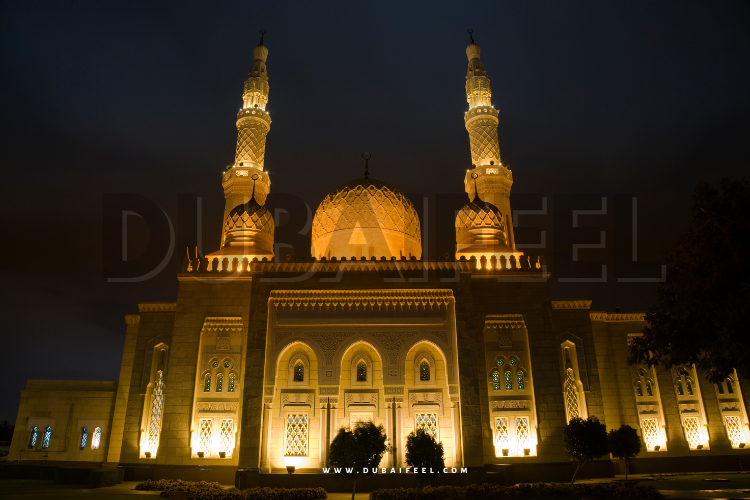
The Jumeirah Mosque is perhaps Dubai’s most dazzling milestone, known for its engineering and inviting environment. The mosque represents receptiveness, welcoming individuals to comprehend the standards and values that shape Dubai’s culture. The Jumeirah Mosque, which works in the conventional Fatimid style, demonstrates the magnificence of Islamic design with its perplexing carvings and enormous focal vault. What makes the Jumeirah Mosque unique is the directed visits presented by the Sheik Mohammed Community for Social Comprehension.
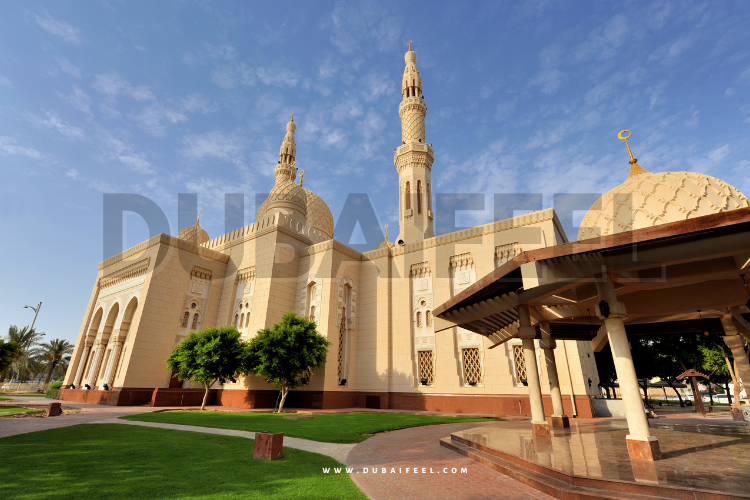
These visits are touring trips, yet intelligent, instructive encounters that give a more profound comprehension of the UAE’s religion and culture, encouraging a more prominent appreciation for the customs that characterize the country. At the Jumeirah Mosque, guests are observers as well as dynamic members.
They seek clarification on some pressing issues, encouraging a feeling of association between various societies and advancing figuring out in a quiet climate. The involvement with the Jumeirah Mosque is as much about valuing the creativity of the structure as it’s worth about submerging oneself in the social acts of the district.
As you investigate the mosque and chat with the aides, you’ll acquire experiences of Dubai’s way of life and the qualities that have formed its general public. It’s something other than a visit to a lovely structure; it’s an opportunity to draw in with the core of the nearby culture, making Jumeirah Mosque a priority objective for anyone interested in investigating Dubai’s practices and lifestyle.
4. Attend the Sheikh Mohammed Centre for Cultural Understanding
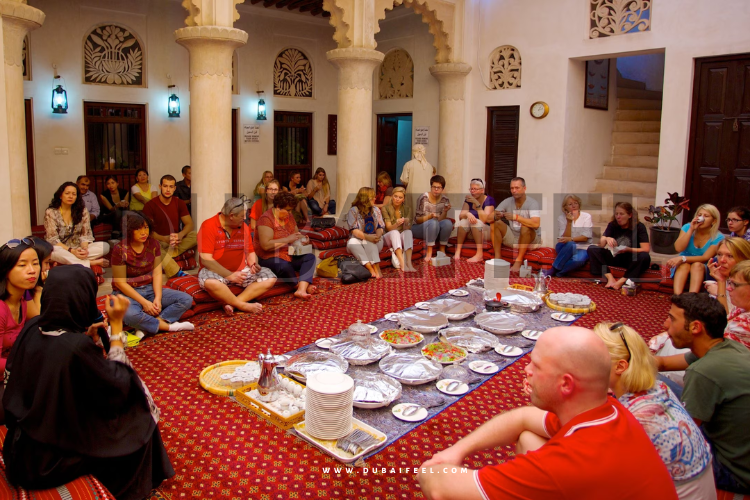
This Centre for Cultural Understanding (SMCCU) stands as a unique gateway to the rich and diverse culture of the United Arab Emirates. The centre acts as a focal point for education and culture, providing visitors with a profound and genuine understanding of Emirati traditions and customs. Established in 1998, SMCCU operates under the motto “Open Doors, Open Minds,” which perfectly encapsulates its mission to bridge cultural gaps and foster understanding between the local community and international visitors.
One of the centre’s main objectives is to break down the barriers between different cultures. Through unique experiences like guided tours, cultural meals, and open discussions, SMCCU provides a platform where visitors can engage themselves in the local culture respectfully and engagingly. Whether you’re attending a traditional Emirati breakfast or participating in a mosque tour, the centre offers a variety of experiences that highlight the UAE’s cultural heritage.
The cultural meals at SMCCU are trendy, offering an intimate and relaxed setting where guests can sit together and enjoy authentic Emirati cuisine while learning about the traditions that surround these meals. During these gatherings, knowledgeable guides share insights into the cultural significance of the food, dining etiquette, and the role of hospitality in Emirati society. The communal nature of these meals allows for open conversation, encouraging guests to ask questions about the local culture in a welcoming and relaxed environment.
Another key feature of the SMCCU is its guided mosque tours, which offer a rare opportunity to learn about Islamic practices and the role of religion in the local culture. The tours are mainly by knowledgeable guides eager to explain various aspects of Islamic culture, from daily prayer rituals to the significance of the architecture. The emphasis on open dialogue ensures that visitors leave with a better understanding of the religious and cultural values that shape Emirati society.
Beyond meals and mosque tours, the SMCCU offers walking tours through the Al Fahidi Historical Neighborhood. Visitors can explore the traditional wind-tower architecture and learn about Dubai’s trading port history. These tours connect the past with the present, showing how Dubai’s culture has evolved while preserving its roots. By walking through the narrow lanes of this historic district, guests gain a deeper appreciation for the resilience and adaptability of the Emirati people and their culture. What makes the Sheikh Mohammed Centre for Cultural Understanding unique is its commitment to fostering an environment of mutual respect and openness.
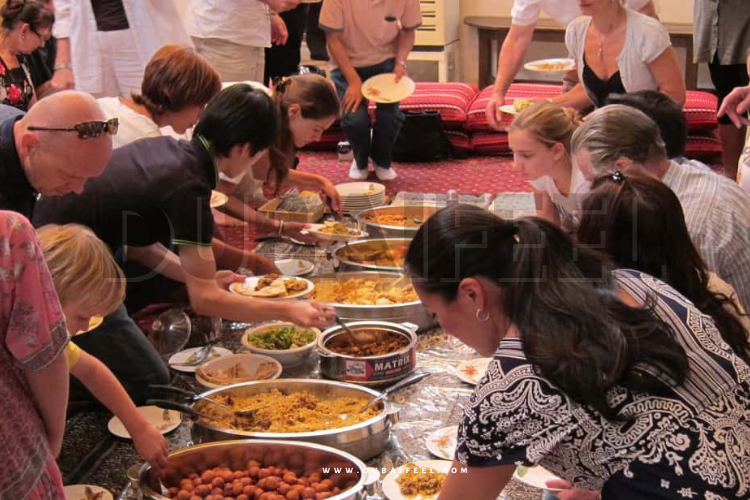
The centre’s programs mainly create meaningful cultural exchanges where visitors can learn about local traditions without feeling like outsiders. The focus is on building connections between people from different experiences, promoting a culture of inclusivity and understanding. For those looking to explore Dubai’s culture more meaningfully, the SMCCU offers an unparalleled opportunity.
It goes beyond the typical tourist experience by looking deeper into the values, customs, and beliefs that define Emirati culture. Whether you’re a resident or a visitor, the centre offers something for everyone, from history enthusiasts to those curious about the local way of life. In a city as diverse and rapidly changing as Dubai, the Sheikh Mohammed Centre for Cultural Understanding plays a vital role in preserving and promoting the local culture.
The centre helps visitors understand and appreciate Dubai’s cultural heritage through its programs. By opening doors to open minds, SMCCU continues to build bridges between cultures, making it an essential visit for anyone interested in experiencing the true essence of Dubai’s culture.
Also read: Dubai’s Top 3 Spas: Where Luxury and Relaxation Meet
5. The Souks of Dubai: A Cultural Treasure Trove
The souks of Dubai offer an immersive experience of the city’s vibrant cultural heritage. Visiting these traditional markets is essential for anyone purchasing authentic items such as spices, textiles, and gold at competitive prices.
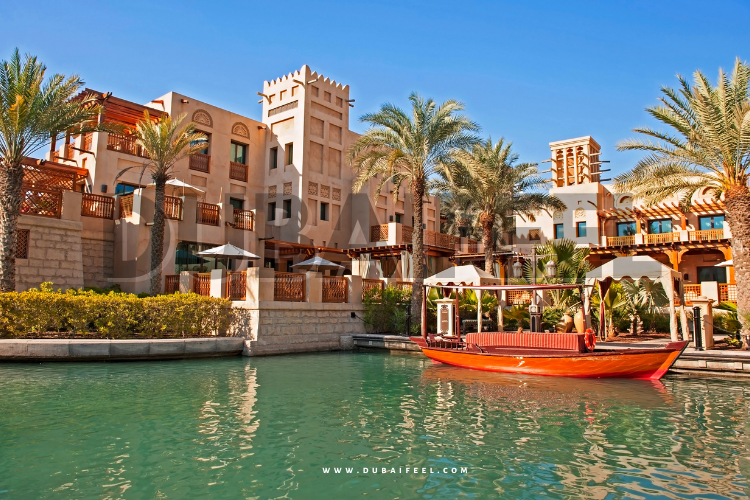
The Dubai souks are a window into the city’s rich history and provide visitors with a taste of the local culture that has persisted even amidst the city’s rapid modernization. Located in Old Dubai, these souks showcase a side of Dubai that is less about luxury skyscrapers and more about cultural authenticity.
From the winding alleys filled with the smell of fragrant spices to the shimmering displays of gold jewellery, the Dubai souks are a sensory journey into the heart of Emirati culture. The Spice Souk is one of Dubai’s most enchanting and culturally significant areas. The Spice Souk has vendors selling various spices worldwide in the Al Ras district of Deira. The atmosphere is rich with the scents of dry roses, saffron, Eucalyptus, and many other herbs that hold both culinary value and medicinal properties.
These spices reflect a tradition of natural remedies deeply embedded in the local culture. Walking through the narrow lanes of the Spice Souk, you are greeted with the opportunity to sample and smell the offerings, creating an interactive experience highlighting spices’ profound cultural importance in Middle Eastern cooking and medicine. Dubai’s reputation as the “City of Gold” comes to life in the Gold Souk, another cultural gem of Old Dubai.
This souk has over 200 shops showcasing everything from intricate bracelets to elaborate body suits. The Gold Souk also boasts an entry in the Guinness World Records for housing the world’s most giant gold ring. More than just a market, the Gold Souk reflects the local culture’s appreciation for craftsmanship, luxury, and tradition. The Textile Souk is another cultural highlight of the Al Ras area. This souk features fabrics from all over the world, with vendors offering fine silks, cotton, and other textiles, often used to create traditional Emirati clothing.
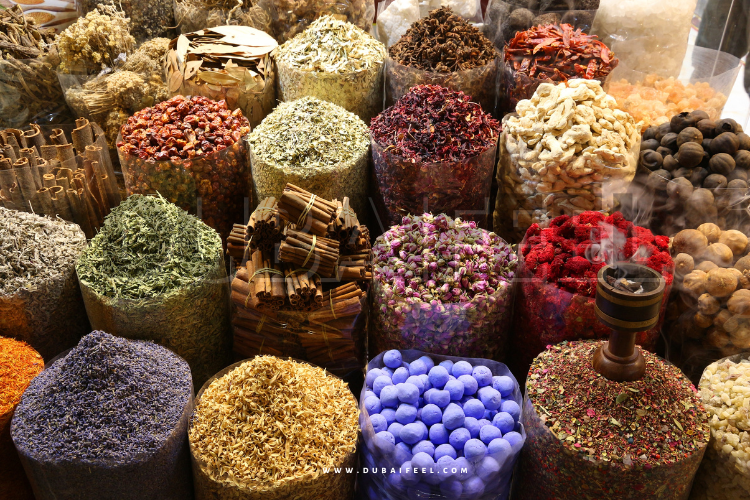
The souk’s corridors, supported by wooden arches, exude a historical charm, while the vendors, fluent in various languages, engage with customers in an informative and culturally enriching way. Here, visitors can purchase traditional attire such as abayas and kanduras, immersing themselves further into Dubai’s culture by adorning themselves with garments worn for generations. The Perfume Souk, located close to the Gold Souk, is a fragrant reminder of the cultural importance of scents in Emirati life.
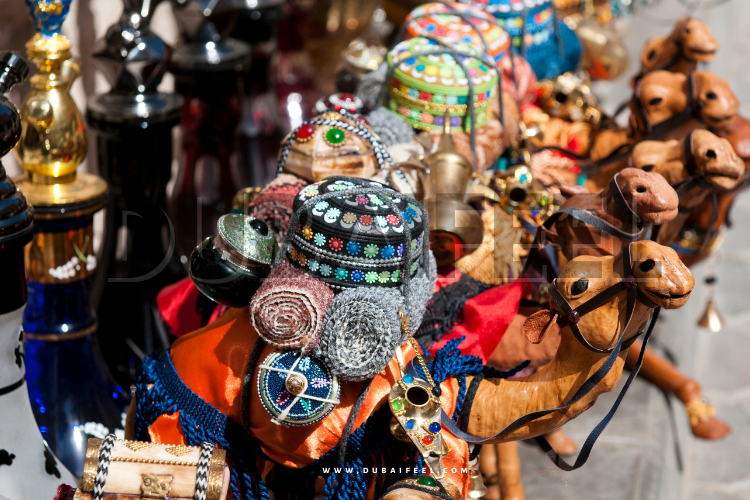
Here, you can find traditional perfumes made from oud, musk, and other natural ingredients that have been part of the local culture for centuries. These perfumes are not just luxury items; they are an integral part of daily life in the Middle East, used in ceremonies, religious rituals, and as symbols of hospitality.
The Perfume Souk offers visitors a chance to take home a piece of this olfactory tradition, allowing them to experience the culture profoundly personally. Souk Al Bahar, located in Downtown Dubai, is a modern take on the traditional souk experience. Though contemporary in appearance, Souk Al Bahar retains a strong connection to traditional Middle Eastern culture through its architecture, products, and the cultural ambience it fosters. Whether you’re bargaining for gold jewellery, sampling spices, or selecting fabric for traditional attire, the souks provide a unique opportunity to engage with the culture at the heart of Dubai for generations.
6. Experience Authentic Emirati Cuisine
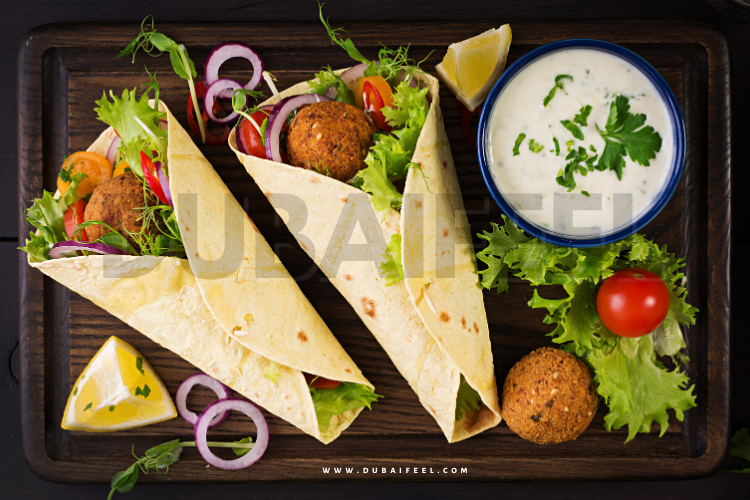
Indulge in the rich flavours of traditional Emirati dishes like hummus and shawarma at local restaurants, where food meets culture. Emirati cuisine reflects a unique blend of Arabian, Persian, and Indian influences that have shaped Dubai’s culinary landscape for centuries. Machboos, hummus, and a creamy chickpea dip are staples that capture the essence of Emirati hospitality. Shawarma stands offer a delicious experience wrapped in pita bread for a quick yet flavorful bite. A cultural food tour provides a deeper understanding of Dubai’s culinary heritage while tantalizing your taste buds.
Also read: Discover Dubai’s 8 Historical Sites: What You’ll Love and What Might Disappoint
7. Attend a Cultural Festival
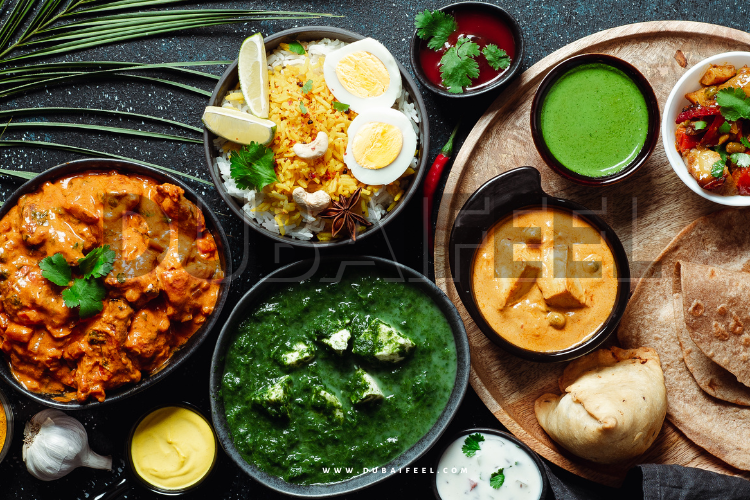
Dubai’s vibrant cultural festivals, such as the Dubai International Film Festival, Art Dubai, and the Al Marmoom Heritage Festival, offer an immersive experience of the city’s rich cultural diversity. These events celebrate Dubai’s global influence while preserving and highlighting local traditions. Whether you are captivated by the glitz of the film industry, the dynamic art scene, or the deep-rooted Bedouin heritage, these festivals are a must-attend. They provide a unique opportunity to engage with Dubai’s culture through films, artworks, and performances, connecting citizens and visitors in a shared celebration of creativity and tradition.
8. Take a Dhow Cruise on Dubai Creek
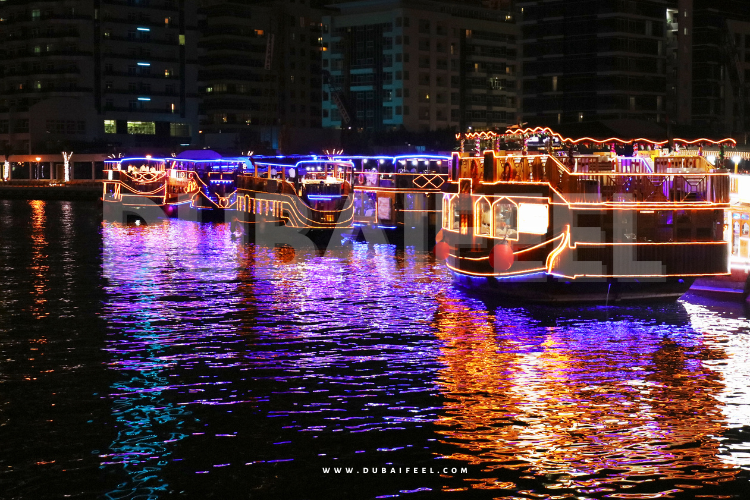
Relish a traditional dhow cruise along Dubai Creek for an unforgettable blend of romance and culture. As the boat glides along the creek, you’ll unveil stunning views of the city’s contrasts—from the historic spice and gold souks to the towering modern skyscrapers. The cruise offers a glimpse into Dubai’s upgrade from a subtle village to a bustling municipality.
Onboard, enjoy traditional Emirati hospitality with local delicacies and soothing Arabic music while reflecting on Dubai’s rich maritime history. This cultural journey perfectly combines the old and the new.
Also read : 5 Must-Do Eco-Friendly Activities in Dubai: What You’ll Love and What You Might Miss.
